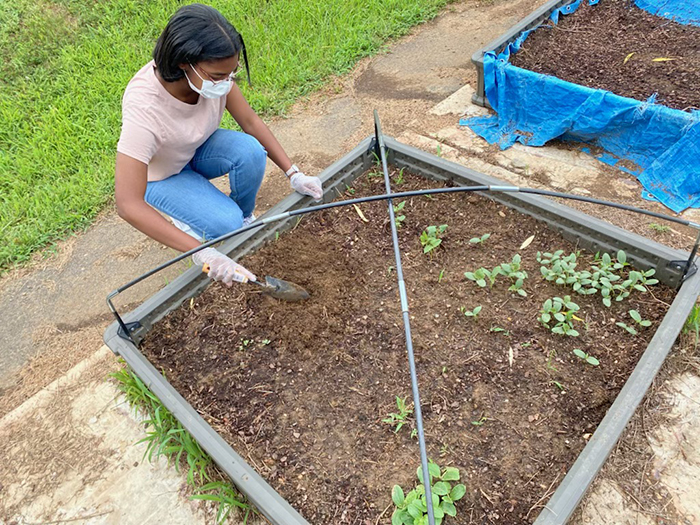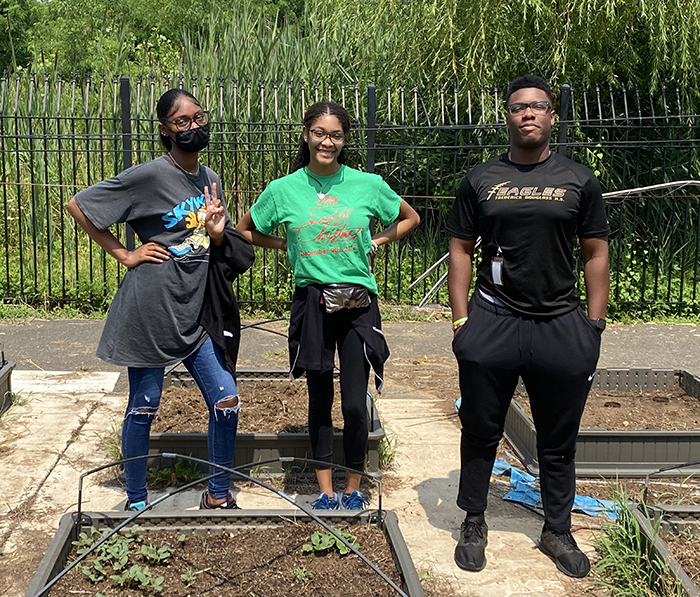This summer, eight high school students came to Mission of Love Charities to volunteer and work for five weeks as a part of the Prince George’s County Summer Youth Enrichment Program.
They came to the Mission to learn job-related skills, gain exposure to a professional environment and contribute to the everyday operations of the nonprofit that provides the basic needs of food, financial assistance for housing costs and job training to homeless and very low-income people in the community.
They also got involved in a special project to create an urban garden and grow food to supplement the pantry that supplies food for the Mission’s clients. They put down soil in plots on the Mission’s property, and now they’re growing vegetables and fruit in a garden in the middle of a concrete city.
Of course, the lesson is not lost that the urban garden is the natural remedy for a food desert in the middle of the community. The vegetables and fruit harvested from the urban garden help thwart the food insecurity that afflicts most of the Mission’s clients.
Why would high school students volunteer to do this?
One student explained that she wanted to challenge herself and her natural shyness by working with others. Another said that he “wanted to help people” who had less than he did.
The reality is that the food deserts (urban areas without fresh and affordable food) contributed to the uncertainty many individuals and families face – where will we get our next meal? This uncertainty was only exacerbated by the impact of the COVID-19 pandemic. Working with the student volunteers, the Mission came up with a plan to address this problem.
With the help and guidance of the Mission, the students created a green, lush garden that is yielding nutritious and tasty vegetables and fruit that will go to people who are hungry and don’t have the money to pay for food. Meanwhile, the students also learned how to create a budget, a plan with expected results, and a timeline for their project. They are literally seeing the fruits of their labor. Not only are they harvesting the wonderful vegetables and fruit, they then see that produce go to people who really need food because they can’t afford to buy food.
The bottom line is that the students learn urban gardening while also learning how to help people who are in need. Maybe that experience will teach them lessons they can use for the rest of their lives. And hungry needy people get fresh vegetables and fruit as a result. That’s clearly a win-win deal.

More News
Greater Baden Medical Services and Mission of Love Charities Partner to Enhance Healthcare and Social Services in Prince George’s County
March 22, 2024
GBMS and MOLC partner to expand health and social services in Prince...
Read moreNewsletter – Issue 1 | 2024
February 1, 2024
Check out the newest edition of the MOLC newsletter!
Read moreJoin the movement “Give Today to Give Hope to Others Tomorrow!
November 28, 2023
This Giving Tuesday, we are urging you to join us in our endeavors by...
Read more